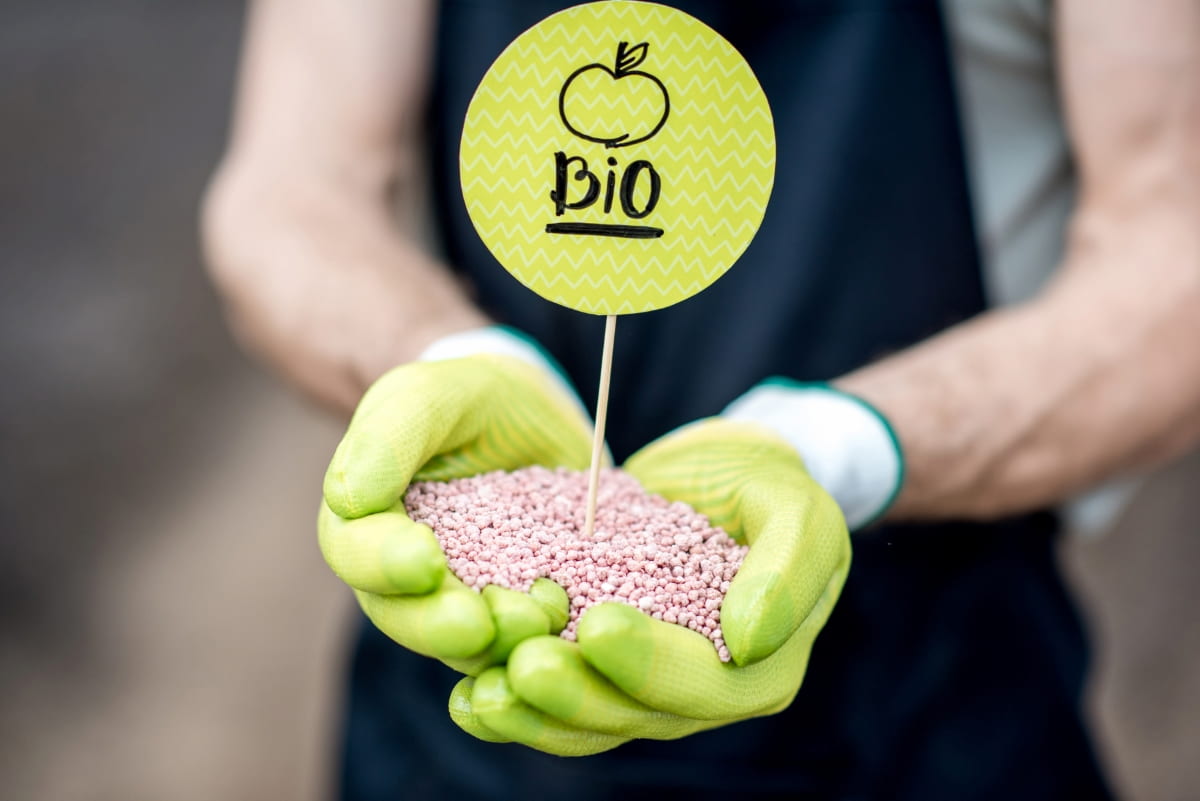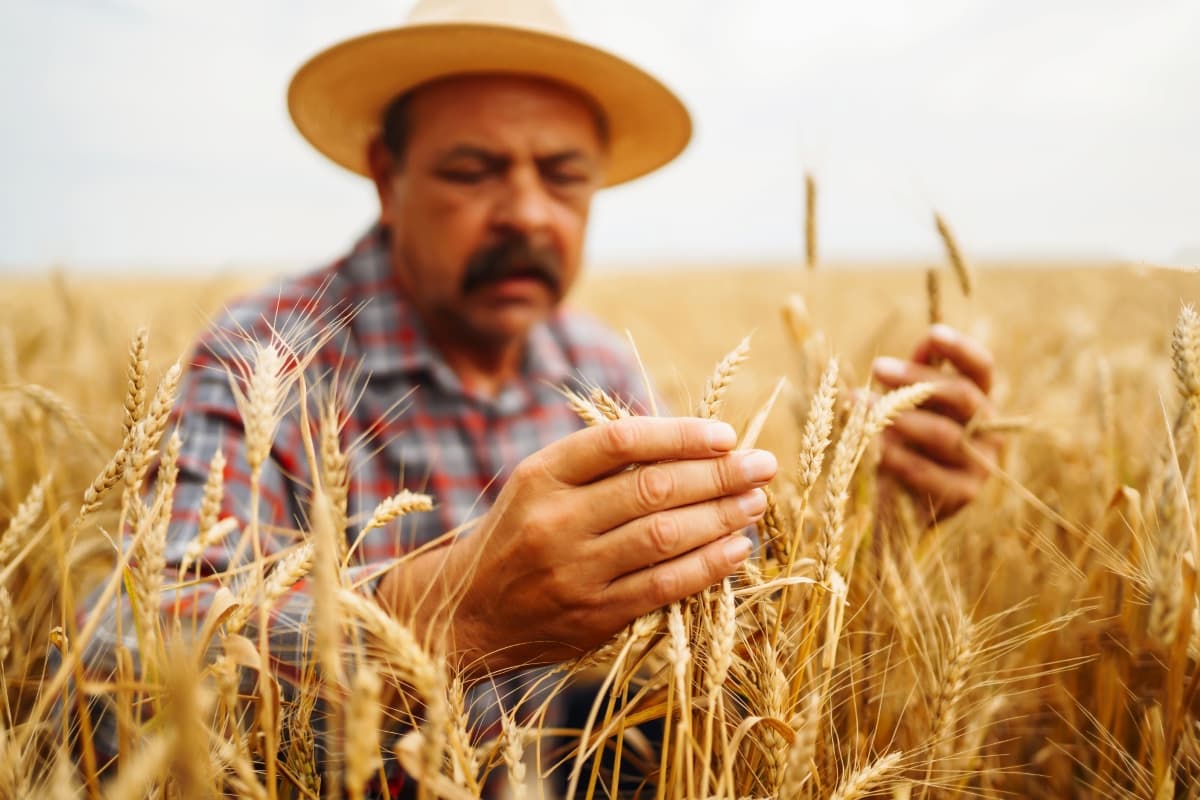The global demand for cereals, which are crucial for human and animal nutrition, is projected to experience substantial growth in the coming decades. With this ever-growing need, boosting cereal yields has become a pressing matter. Conventionally, farmers have used synthetic fertilizers to accelerate the growth of crops.

Organic fertilizers are increasingly recognized as a viable and eco-friendly solution for improving cereal crop yields. The use of organic fertilizers not only mitigates the adverse effects of synthetic fertilizers but also improves the overall health and fertility of the soil, leading to enhanced crop yield. This article examines the impact of organic fertilizers on cereal crop yields, specifically focusing on their effect on plant growth.
How to Increase Cereal Yields Through Organic Fertilizers
Organic Fertilizers and Plant Growth
The significant effect of organic fertilizers on plant growth is the cornerstone of this agronomic revolution. Organic fertilizers are derived from naturally occurring organic materials, such as animal waste, plant waste, and mineral ores. They contain essential nutrients, including nitrogen, phosphorus, potassium, or NPK, and other micro-nutrients required for plant growth. Unlike synthetic fertilizers that directly provide nutrients to the crops, organic fertilizers release these nutrients slowly over a period.
This controlled release fosters the growth of beneficial microbes, enriches the soil with organic matter, and improves soil structure, ultimately boosting the plant’s growth. Organic fertilizers also improve the soil’s water-holding capacity, reducing the risk of plant dehydration. Moreover, these fertilizers enhance the soil’s cation exchange capacity, facilitating efficient nutrient absorption by the plant roots. This holistic nourishment strategy ensures the healthy and vigorous growth of cereal plants.
Organic Fertilizers and Cereal Yields
The improved plant growth due to organic fertilizers directly translates into higher cereal yields. Numerous studies have affirmed the positive correlation between using organic fertilizers and cereal yield. However, the degree of yield increase depends upon the type and quality of the organic fertilizer used, the cereal crop in question, and the specific soil and climatic conditions.
Cereal crops like wheat, rice, and corn yield significantly increased with organic fertilizers. For instance, a study on wheat cultivation revealed a 10-15% yield increase when well-composted farmyard manure was used. Similarly, corn and rice fields have reported yield enhancement using organic fertilizers. The yield improvement is due to the increased availability of essential nutrients, better soil health, and improved resistance to pests and diseases.
Choosing the Right Organic Fertilizer for Cereal Crops
While the benefits of organic fertilizers are undeniable, not all are created equal. Different organic fertilizers have different nutrient profiles and work best for different types of soil and crops. Therefore, the choice of organic fertilizer should be made after thorough soil testing and an understanding of the nutritional requirements of the cereal crop to be cultivated.
In case you missed it: Ultimate Guide to Cereal Grass Fodder Crops: Maize, and Sorghum

Composted animal manure, particularly from cattle, sheep, and poultry, is one of the most commonly used organic fertilizers. It is rich in nitrogen and helps in improving soil fertility. Green manure, like cover crops or crop residues, is another excellent organic fertilizer. They are turned into the soil while still green or shortly after flowering, providing a balanced amount of NPK to the soil.
Challenges and Future Prospects in Using Organic Fertilizers
Despite the significant benefits of organic fertilizers, their adoption is not without challenges. Their nutrient content is less predictable, and their effects are slower than synthetic fertilizers. This slower release of nutrients requires proper timing and application rates to meet the crops’ nutritional needs during their growth phases.
Additionally, the bulkiness of organic fertilizers adds to the transportation and application costs. Overcoming these challenges requires effective and scientifically informed management strategies, innovative technology, and supportive policies. Despite these challenges, the future of organic fertilizers in cereal production looks promising. More and more farmers and agronomists are recognizing the importance of soil health and environmental sustainability in achieving long-term agricultural productivity.
As a result, the interest in organic farming and using organic fertilizers is gaining momentum globally. Technological advancements, like precision farming, are making it easier to apply organic fertilizers effectively, and the growing market for organic food products is expected to fuel this trend further.
Furthermore, research and development efforts in organic fertilizers are increasing. Researchers are working on ways to enhance organic fertilizers’ nutrient content and water-holding capacity, as well as developing new types of organic fertilizers from various organic waste materials. This not only contributes to the sustainability of agriculture but also aids in waste management.
Promoting Organic Farming Practices
Promoting organic farming practices, including the use of organic fertilizers, is a necessary step towards sustainable agriculture. This can be accomplished through diverse approaches, including educating and raising awareness among farmers, demonstrating effective organic farming techniques, and offering incentives to farmers who embrace these methods.
Improving Accessibility and Affordability of Organic Fertilizers
In order to enhance the uptake of organic fertilizers, it is imperative to improve their availability and affordability for farmers. Governmental and non-governmental organizations can play a significant role in this regard. They can subsidize the production and distribution of organic fertilizers to lower farmers’ costs.
In case you missed it: Challenges and Opportunities: Exploring the Future of Vegetable Contract Farming in India

Public-private partnerships can also be established to build infrastructure for organic fertilizer production, thereby reducing their price and increasing availability. Educational programs can be initiated to inform farmers of the benefits of organic fertilizers and train them on how to use these fertilizers to maximize their yield effectively.
Conclusion
The need for sustainable farming practices to meet the rising global demand for cereals has never been more urgent. Organic fertilizers play a pivotal role in meeting this challenge. Organic fertilizers are a viable and sustainable alternative to conventional synthetic fertilizers by enhancing soil fertility, promoting robust plant growth, and improving cereal yields.
While challenges exist in the widespread adoption of organic fertilizers, technological advancements and increased awareness about sustainable agricultural practices are paving the way for their increased use in the future. Ongoing advancements in this area of study will increase the utilization of organic fertilizers to enhance cereal production. This initiative will significantly enhance sustainable agriculture and ensure global food security.
- Feed Your Flock for Less: Top 10 Tips to Save on Chicken Feed
- Ultimate Guide to Ossabaw Island Hog: Breeding, Raising, Diet, and Care
- Hatching Answers: The Top 10 Reasons Your Chickens Aren’t Laying Eggs
- Eggs and Economics: Breaking Down the Cost of Raising Backyard Chickens
- Defend Your Greens: Proven Methods to Keep Iguanas Out of Your Garden
- Ultimate Guide to Cinnamon Queen Chicken: A Comprehensive Guide for Beginners
- Ultimate Guide to California Tan Chicken: Breeding, Raising, Diet, Egg-Production and Care
- Ultimate Guide to Marsh Daisy Chicken: Breeding, Raising, Diet, and Care
- 10 Types of Chicken Farming Businesses You Can Start for Profits